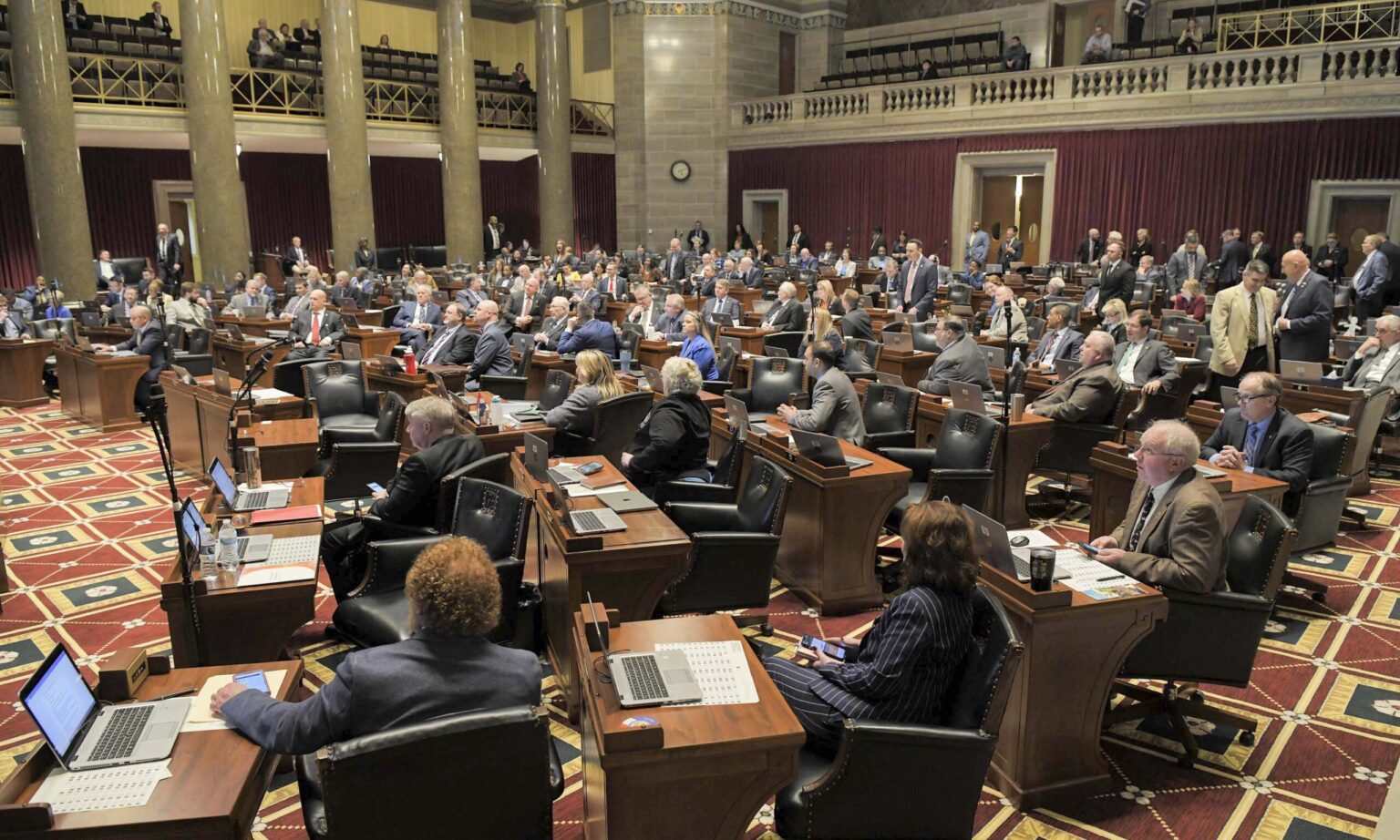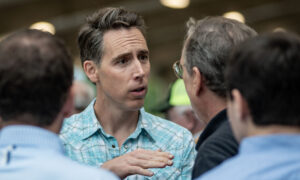11:00
News Story
Missouri Democrats, tired of seeing uncontested Republicans, recruit more legislative candidates
When Melissa Viloria was growing up in northeast Missouri, few people in power that looked like her.
Viloria was born in Hawaii to a mother from Missouri and a father who immigrated to the U.S. from the Philippines. Her parents moved to Missouri in 1978. They found themselves among the few vocal Democrats of the nearly 3,000 people living in Monroe City.
She’s been involved in politics her whole life, running county Democratic clubs and traveling around northeast Missouri hearing from voters. Now, as Missouri Democrats look to improve their presence statewide, Viloria’s name is on the ballot.
Many of the races Democrats want to challenge are almost guaranteed losses. But it’s part of the party’s strategy to regain ground in Jefferson City, where Republicans have controlled the General Assembly since 2002. It’s a dynamic that makes Missouri one of the least competitive states when it comes to November elections.
“One of the things that we have seen in Missouri over the last decade or decade and a half is that many more state legislative seats were uncontested in the general election,” said Peverill Squire, a professor of political science at the University of Missouri. “The Democrats have done a better job of recruiting candidates and filling their ballot lines this time around.”
Viloria is running in the 4th Missouri House District and is the first Democrat to be listed on the ballot there in over a decade. It will be an uphill battle for her to secure a victory in November, but she believes Democrats need to start somewhere.
“I thought, even if it’s just for representation — just to run and show others you can — absolutely, let’s try it,” she said.
Viloria is challenging Rep. Greg Sharpe, who was first elected in 2019. She’s one of many Democrats running in races where the odds are stacked against them.
“I don’t think you should go unchecked,” Viloria said. “If you’re not putting in the work, the time and the effort for the job, then you don’t get the job.”
Missouri’s history with uncontested races
It’s common for more partisan areas of the state to be without major party competition on general election ballots in Missouri. The state’s cities, which lean Democratic, often don’t have Republicans on the ballot when it comes to the state House or Senate. And in more rural parts of Missouri, Republicans often run without a Democratic opponent.
The 2022 election was one of the least competitive cycles in recent history: 78 of the state’s 180 legislative races, or 43.3% of the legislature, were contested. That was down from 50% in 2020, a Ballotpedia analysis found.
This November will be different. Across the House and the Senate, nearly 75% of races will have candidates from the two major parties.
It’s no surprise that in a red state Republicans had higher numbers of candidates running without a challenge from a major party. During the last election cycle, 73 Republicans had no Democratic opponent, while 29 of Democrats ran uncontested.
“There are other states where this problem is even worse,” Squire said. “On the Democratic side this year, there has been a national effort to try to get people on more ballot lines, simply to make races more competitive and probably in the end pick up some seats that they might not have before.”
Missouri Democrats for years have been looking to cut into the two-thirds supermajority in Jefferson City. The party sees recruiting a candidate for each race, even the longshot ones, as one path to get there.
“Having somebody to rally around, not only is it good for the candidate, but having a candidate in different communities across the state gives them something to get excited about,” said Alex Johnson, the field director for the Missouri House Democratic Campaign Committee. “That’s not just good for 2024. … It gives us a better launching point for future election cycles.”
With more than half the state’s House races unchallenged in the general election, voters had little reason to even think about the races.
“For voters,” said Squire, the MU political scientist, “it’s a big deal for Missouri to have so many candidates running.”
The importance of choice between candidates got Jess Piper to put her name on the ballot in 2022 for Missouri’s 2nd House District.
“People say, ‘You get what you vote for,’ and you’re like, ‘I don’t have anyone to vote for,” she said.
She garnered online attention during her longshot bid and raised loads of money in the process. Piper still lost her race by over 50 points that November. Now she helps run Blue Missouri, an outfit that raises money for down ballot Democratic candidates in Missouri.
“It might be a cycle, two cycles, maybe even three cycles before we can flip any of these seats,” Piper said. “We give money to them anyway … because we know they’re sticking their neck out and doing something that’s really hard. I think it’s immoral to ask people to do that and not fund them in the process.”
Her conversations ahead of the 2022 election were mostly focused on kitchen table issues: Schools, health care and infrastructure..
“People just need to hear the message in more than one cycle. They need to marinate it for a little bit,” Piper said. “We’re all going to get our butt kicked the first time. This is how it works.”
The difficulties of running a losing race in Missouri
Democrats have struggled to keep candidates in state legislative races for a variety of reasons. It can be expensive and time-consuming to run a competitive campaign.
And it can be a hard sell for people the Missouri Democrats want to recruit. Many are professionals in high-paying jobs. Convincing them to walk away for a salary of less than $40,000 a year is tough.
Plus, it’s difficult to keep up with voters if there hasn’t been a party presence in the district in the recent past.
November will be the second election since Missouri’s state legislative districts were redrawn following the 2020 Census. Leslie Jones, a Democrat running in Springfield and Republic, is taking on the ballot in a district where the party hasn’t had much power.
“When I first decided to run, I was flat out told by many people that ‘You will not win this,’” Jones said. “I don’t want to listen to that voice. … I’m looking at this as an opportunity for us to go in and get data and see what the district really looks like.”
Without candidates in some of the races, it can be difficult to see how competitive an area really may be. Jones’s district, for example, includes deep red parts of the state. But an Amazon warehouse has brought new workers to the Republic and the Springfield area is booming.
“It’s worth having people run, so that we can see if there is momentum shifting,” Jones said. “We’re not going to get that if people don’t run.”
This article first appeared on Beacon: Missouri and is republished here under a Creative Commons license.![]()
Our stories may be republished online or in print under Creative Commons license CC BY-NC-ND 4.0. We ask that you edit only for style or to shorten, provide proper attribution and link to our website. AP and Getty images may not be republished. Please see our republishing guidelines for use of any other photos and graphics.





